32 start with P start with P
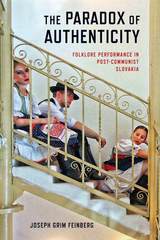
In Slovakia and elsewhere in Eastern Europe after World War II, Communist governments promoted folklore revivals and staged performances of song and dance as representations of "the people." When the Communists fell from power in Slovakia in 1989, folklore was also discredited in the eyes of many. By the early twenty-first century, however, a new generation launched a movement to revive folklore's reputation and reintroduce it to a broad public.
Weaving together personal narrative, ethnographic analysis, and philosophical reflection, Feinberg examines the aspirations and difficulties of young folk dance devotees as they recognize that authenticity is more easily prized than achieved. He sheds new light on the problems of specialized performance and broad participation, the uneasy relationship between folklore and the public sphere, and the paradoxical pursuit of authenticity in the modern world.
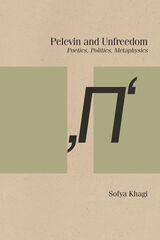
Sofya Khagi’s Pelevin and Unfreedom: Poetics, Politics, Metaphysics is the first book-length English-language study of Victor Pelevin, one of the most significant and popular Russian authors of the post-Soviet era. The text explores Pelevin’s sustained Dostoevskian reflections on the philosophical question of freedom and his complex oeuvre and worldview, shaped by the idea that contemporary social conditions pervert that very notion.
Khagi shows that Pelevin uses provocative and imaginative prose to model different systems of unfreedom, vividly illustrating how the present world deploys hyper-commodification and technological manipulation to promote human degradation and social deadlock. Rather than rehearse Cold War–era platitudes about totalitarianism, Pelevin holds up a mirror to show how social control (now covert, yet far more efficient) masquerades as freedom and how eagerly we accept, even welcome, control under the techno-consumer system. He reflects on how commonplace discursive markers of freedom (like the free market) are in fact misleading and disempowering. Under this comfortably self-occluding bondage, the subject loses all power of self-determination, free will, and ethical judgment. In his work, Pelevin highlights the unprecedented subversion of human society by the techno-consumer machine. Yet, Khagi argues, however circumscribed and ironically qualified, he holds onto the emancipatory potential of ethics and even an emancipatory humanism.
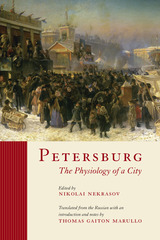
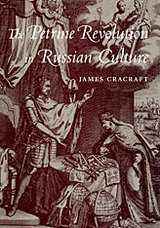
The reforms initiated by Peter the Great transformed Russia not only into a European power, but into a European culture--a shift, argues James Cracraft, that was nothing less than revolutionary. The author of seminal works on visual culture in the Petrine era, Cracraft now turns his attention to the changes that occurred in Russian verbal culture.
The forceful institutionalization of the tsar's reforms--the establishment of a navy, modernization of the army, restructuring of the government, introduction of new arts and sciences--had an enormous impact on language. Cracraft details the transmission to Russia of contemporary European naval, military, bureaucratic, legal, scientific, and literary norms and their corresponding lexical and other linguistic effects. This crucial first stage in the development of a "modern" verbal culture in Russia saw the translation and publication of a wholly unprecedented number of textbooks and treatises; the establishment of new printing presses and the introduction of a new alphabet; the compilation, for the first time, of grammars and dictionaries of Russian; and the initial standardization, in consequence, of the modern Russian literary language. Peter's creation of the St. Petersburg Academy of Sciences, the chief agency advancing these reforms, is also highlighted.
In the conclusion to his masterwork, Cracraft deftly pulls together the Petrine reforms in verbal and visual culture to portray a revolution that would have dramatic consequences for Russia, and for the world.
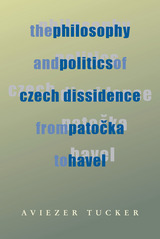
A critical study of the philosophy and political practice of the Czech dissident movement Charter 77. Aviezer Tucker examines how the political philosophy of Jan Patocka (1907–1977), founder of Charter 77, influenced the thinking and political leadership of Vaclav Havel as dissident and president.
Presents the first serious treatment of Havel as philosopher and Patocka as a political thinker. Through the Charter 77 dissident movement in Czechoslovakia, opponents of communism based their civil struggle for human rights on philosophic foundations, and members of the Charter 77 later led the Velvet Revolution. After Patocka’s self-sacrifice in 1977, Vaclav Havel emerged a strong philosophical and political force, and he continued to apply Patocka’s philosophy in order to understand the human condition under late communism and the meaning of dissidence. However, the political/philosophical orientation of the Charter 77 movement failed to provide President Havel with an adequate basis for comprehending and responding to the extraordinary political and economic problems of the postcommunist period.
In his discussion of Havel's presidency and the eventual corruption of the Velvet Revolution, Tucker demonstrates that the weaknesses in Charter 77 member's understanding of modernity, which did not matter while they were dissidents, seriously harmed their ability to function in a modern democratic system. Within this context, Tucker also examines Havel’s recent attempt to topple the democratic but corrupt government in 1997–1998. The Philosophy and Politics of Czech Dissidence from Patocka to Havel will be of interest to students of philosophy and politics, scholars and students of Slavic studies, and historians, as well as anyone fascinated by the nature of dissidence.
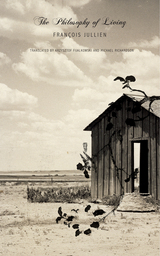
Living holds us between two places. It expresses what is most elementary—to be alive—and the absoluteness of our aspiration—finally living! But could we desire anything other than to live? In The Philosophy of Living, François Jullien meditates on Far Eastern thought and philosophy to analyze concepts that can be folded into a complete philosophy of living, including the idea of the moment, the ambiguity of the in-between, and what he calls the “transparency of morning.” Jullien here develops a strategy of living that goes beyond morality and dwells in the space between health and spirituality.
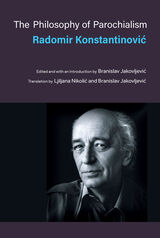
The Philosophy of Parochialism is Radomir Konstantinović’s (1928–2011) most celebrated and reviled book. First published in Belgrade as Filosofija palanke in 1969, it attracted keen attention and controversy through its unsparing critique of Serbian and any other nationalism in Yugoslavia and beyond. The book was prophetic, seeming to anticipate not only the bloody disintegration of Yugoslavia in the 1990s, but also the totalitarian turn in politics across the globe in the first decades of the new century. With this translation, English-speaking audiences can at last discover one of the most original writers of eastern European late modernism, and gain an important and original perspective into contemporary politics and culture in the West and beyond. This is a book that seems to age in reverse, as its meanings become deeper and more universal with the passage of time.
Konstantinović’sbookresists easy classification, mixing classical, Montaigne-like essay, prose poetry, novel, and literary history. The word “philosophy” in the book’s title refers to the solitary activity of reflection and critical thinking, and is also paradoxical: according to the author, a defining characteristic of parochialism is precisely its intolerance toward this kind of self-reflexivity. In Konstantinović’s analysis, parochialism is not a simply a characteristic of a geographical region or a cultural, political, and historical formation—these are all just manifestations of the parochial spirit as the spirit of insularity. His book illuminates the current moment, in which insularity undergirds not only ethnic and national divisions, but also dictates the very structure of everyday life, and where individuals can easily find themselves locked in an echo chamber of social media. The Philosophy of Parochialism can help us understand better not only the dead ends of ethnic nationalism and other atavistic ideologies, but also of those cultural forces such as digital technologies that have been built on the promise of overcoming those ideologies.
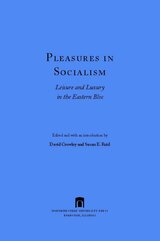
Much has been written about the workings of communist governments in the USSR and the Soviet bloc, yet there is still a great deal to explore regarding their relationship to the everyday lives of the citizens living under them. This third volume builds on the editors’ Style and Socialism and Socialist Spaces, showing how the rise of consumer culture took a unique form in these countries.
Essays from top scholars address topics ranging from fashion and game shows to smoking and camping. The authors of the essays in this collection investigate the ways in which pleasurable activities, like many other facets of daily life, were both a space in which these communist governments tried to insinuate themselves and thereby further expand the reach of their authority,
and also an opportunity for people to assert their individuality.

Taras Ševčenko (1814–1861) is the central figure in modern Ukrainian literature, but despite the enormous attention that has been devoted to his person, his work, and his role in Ukrainian history and the Ukrainian national renascence, the core of the Ševčenko phenomenon—the symbolic nature of his poetry—has received little systematic analysis.
As this book argues, myth serves as the underlying code and model of Ševčenko’s poetic universe. Examining the structures and paradigms of Ševčenko’s mythical thought provides answers for various crucial and heretofore intractable questions, such as those concerning the relation of his Ukrainian poetry to his Russian prose, his sense of a transcendent “curse” and “guilt” in the Ukrainian past and present, the interrelation of his revolutionist fervor with his apparent providentialism, or of the tension between the nativism and the universalism of his poetry.
Moreover, it is through the structures of his mythical thought that we can understand Ševčenko’s “prophecy,” in effect, his millenarian vision. In this framework, too, the author focuses on the religious tenor of Ševčenko’s poetry, in which he is both expiator and carrier of the Word, and, finally, on the reception—indeed the cult of Ševčenko among generations of Ukrainians.

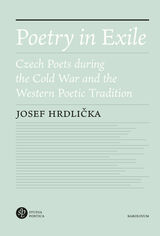

Born eighty years ago in Lithuania, Czeslaw Milosz has been acclaimed “one of the greatest poets of our time, perhaps the greatest” (Joseph Brodsky). This self-described “connoisseur of heavens and abysses” has produced a corpus of poems, essays, memoirs, and fiction of such depth and range that the reader's imagination is moved far beyond ordinary limits of consciousness. In The Poet's Work Leonard Nathan and Arthur Quinn follow Milosz's wanderings in exile from Poland to Paris to Berkeley as they chart the singular development of his art. Relating his life and his works to the unfolding of his thought, they have crafted a lucid reading of Milosz that far surpasses anything yet written on this often enigmatic poet.
The Poet's Work is not only a solid introduction to Milosz; it is also a unique record of the poet's own interpretations of his work. As colleagues of Milosz at Berkeley, Nathan and Quinn had long, detailed discussions with the poet. It is this spirit of collaboration that brings a sense of immediacy and authority to their seamless study. Nathan and Quinn reveal as never before why Milosz is a true visionary, a poet of ideas in history. And they show how the influence of Blake, Simone Weil, Dostoevsky, Lev Shestov, and Swedenborg, together with Henry Miller, Allen Ginsberg, and Robinson Jeffers, has enriched his vision. Milosz's lifelong experience of totalitarian regimes that exalt science and technology over individual needs and aspirations, his acute sense of alienation as an émigré, and his humanistic zeal and belief in the primacy of living have brought a prismatic quality to his poetry.
At seventy, Milosz spoke of himself as an “ecstatic pessimist.” In their sensitive mapping of his art, Nathan and Quinn skillfully demonstrate that Milosz's global influence has been achieved by the ever-shifting balance he strikes between ecstasy and pessimism. Irony and humor are never far from this book, which not only communicates Milosz's polyphonic message but also evokes his uniquely humane sensibility. The Poet's Work is an illuminating introduction to Milosz that will inform and engage scholars and general readers for years to come.
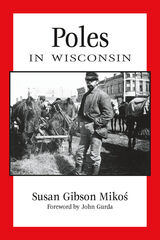
In this all-new addition to the People of Wisconsin series, author Susan Mikos traces the history of Polish immigrants as they settled in America’s northern heartland. The second largest immigrant population after Germans, Poles put down roots in all corners of the state, from the industrial center of Milwaukee to the farmland around Stevens Point, in the Cutover, and beyond. In each locale, they brought with them a hunger to own land, a willingness to work hard, and a passion for building churches.
Included is a first person memoir from Polish immigrant Maciej Wojda, translated for the first time into English, and historical photographs of Polish settlements around our state.
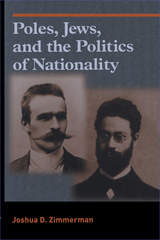
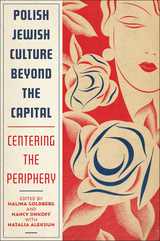
Each essay presents readers with the extraordinary production and consumption of culture by Polish Jews in literature, film, cabaret, theater, the visual arts, architecture, and music. They show how this process was defined by a reciprocal cultural exchange that flourished between cities at the periphery—from Lwów and Wilno to Kraków and Łódź—and international centers like Warsaw, thereby illuminating the place of Polish Jews within urban European cultures.
Companion website (https://polishjewishmusic.iu.edu)

Polish Literature and the Holocaust: Eyewitness Testimonies,1942–1947 is a particularly timely book in view of the continuing debate about the attitudes of Poles toward the Jews during the war. The literary voices from the past that Brenner examines posit questions that are as pertinent now as they were then. And so, while this book speaks to readers who are interested in literary responses to the Holocaust, it also illuminates the universal issue of the responsibility of witnesses toward the victims of any atrocity.
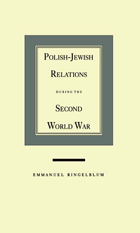
This book represents Ringelbaum's attempt to answer the questions he knew history would ask about the Polish people: what did the Poles do while millions of Jews were being led to the stake? What did the Polish underground do? What did the Government-in-Exile do? Was it inevitable that the Jews, looking their last on this world, should have to see indifference or even gladness on the faces of their neighbors? These questions have haunted Polish-Jewish relations for the last fifty years. Behind them are forces that have haunted Polish-Jewish relations for a thousand years.
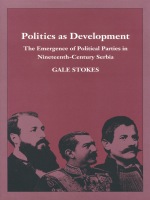
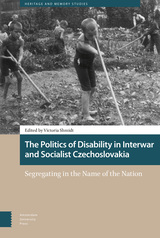
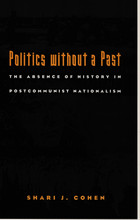
common characterizations of postcommunist politics as either a resurgence of
aggressive nationalism or an evolution toward Western-style democracy. Cohen
draws upon extensive field research to paint a picture of postcommunist
political life in which ideological labels are meaningless and exchangeable
at will, political parties appear and disappear regularly, and citizens
remain unengaged in the political process.
In contrast to the conventional wisdom, which locates the roots of widespread intranational strife in deeply rooted national identities from the past, Cohen argues that a profound ideological vacuum has fueled destructive tension throughout postcommunist Europe and the former Soviet Union. She uses Slovakia as a case study to reveal that communist regimes bequeathed an insidious form of historical amnesia to the majority of the political elite and the societies they govern. Slovakia was particularly vulnerable to communist intervention since its precommunist national consciousness was so weak and its only period of statehood prior to 1993 was as a Nazi puppet-state. To demonstrate her argument, Cohen focuses on Slovakia’s failure to forge a collective memory of the World War II experience. She shows how communist socialization prevented Slovaks from tying their individual family stories—of the Jewish deportations, of the anti-Nazi resistance, or of serving in the wartime government—to a larger historical narrative shared with others, leaving them bereft of historical or moral bearings.
Politics without a Past develops an analytical framework that will be important for future research in Eastern Europe, the former Soviet Union, and beyond. Scholars in political science, history, East European and post-Soviet studies will find Cohen’s methodology and conclusions enlightening. For policymakers, diplomats, and journalists who deal with the region, she offers valuable insights into the elusive nature of postcommunist societies.
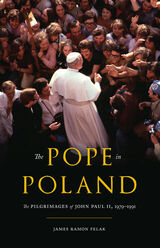
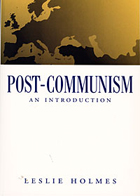

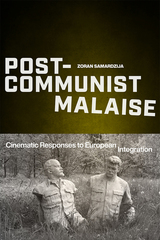
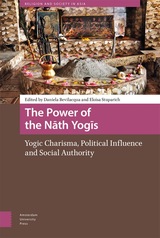
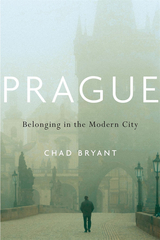
A poignant reflection on alienation and belonging, told through the lives of five remarkable people who struggled against nationalism and intolerance in one of Europe’s most stunning cities.
What does it mean to belong somewhere? For many of Prague’s inhabitants, belonging has been linked to the nation, embodied in the capital city. Grandiose medieval buildings and monuments to national heroes boast of a glorious, shared history. Past governments, democratic and Communist, layered the city with architecture that melded politics and nationhood. Not all inhabitants, however, felt included in these efforts to nurture national belonging. Socialists, dissidents, Jews, Germans, and Vietnamese—all have been subject to hatred and political persecution in the city they called home.
Chad Bryant tells the stories of five marginalized individuals who, over the last two centuries, forged their own notions of belonging in one of Europe’s great cities. An aspiring guidebook writer, a German-speaking newspaperman, a Bolshevik carpenter, an actress of mixed heritage who came of age during the Communist terror, and a Czech-speaking Vietnamese blogger: none of them is famous, but their lives are revealing. They speak to tensions between exclusionary nationalism and on-the-ground diversity. In their struggles against alienation and dislocation, they forged alternative communities in cafes, workplaces, and online. While strolling park paths, joining political marches, or writing about their lives, these outsiders came to embody a city that, on its surface, was built for others.
A powerful and creative meditation on place and nation, the individual and community, Prague envisions how cohesion and difference might coexist as it acknowledges a need common to all.
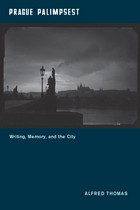
A city of immense literary mystique, Prague has inspired writers across the centuries with its beauty, cosmopolitanism, and tragic history. Envisioning the ancient city in central Europe as a multilayered text, or palimpsest, that has been constantly revised and rewritten—from the medieval and Renaissance chroniclers who legitimized the city’s foundational origins to the modernists of the early twentieth century who established its reputation as the new capital of the avant-garde—Alfred Thomas argues that Prague has become a paradoxical site of inscription and effacement, of memory and forgetting, a utopian link to the prewar and pre-Holocaust European past and a dystopia of totalitarian amnesia.
Considering a wide range of writers, including the city’s most famous son, Franz Kafka, Prague Palimpsest reassesses the work of poets and novelists such as Bohumil Hrabal, Milan Kundera, Gustav Meyrink, Jan Neruda, Vítĕzslav Nezval, and Rainer Maria Rilke and engages with other famous authors who “wrote” Prague, including Guillaume Apollinaire, Ingeborg Bachmann, Albert Camus, Paul Celan, and W. G. Sebald. The result is a comparative, interdisciplinary study that helps to explain why Prague—more than any other major European city—has haunted the cultural and political imagination of the West.
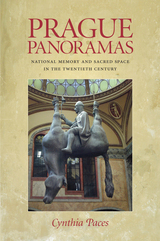
The Czechs struggled to define their national identity throughout the modern era. Prague, the capital of a diverse area comprising Czechs, Slovaks, Germans, Poles, Ruthenians, and Romany as well as various religious groups including Catholics, Protestants, and Jews, became central to the Czech domination of the region and its identity. These struggles have often played out in violent acts, such as the destruction of religious monuments, or the forced segregation and near extermination of Jews.
During the twentieth century, Prague grew increasingly secular, yet leaders continued to look to religious figures such as Jan Hus and Saint Wenceslas as symbols of Czech heritage. Hus, in particular, became a paladin in the struggle for Czech independence from the Habsburg Empire and Austrian Catholicism.
Through her extensive archival research and personal fieldwork, Cynthia Paces offers a panoramic view of Prague as the cradle of Czech national identity, seen through a vast array of memory sites and objects. From the Gothic Saint Vitus Cathedral, to the Communist Party's reconstruction of Jan Hus's Bethlehem Chapel, to the 1969 self-immolation of student Jan Palach in protest of Soviet occupation, to the Hosková plaque commemorating the deportation of Jews from Josefov during the Holocaust, Paces reveals the iconography intrinsic to forming a collective memory and the meaning of being a Czech. As her study discerns, that meaning has yet to be clearly defined, and the search for identity continues today.

“Precious volumes,” or pao-chüan, were produced by popular sects in the Ming and early Qing dynasties. These scriptures were believed to have been divinely revealed to sect leaders and contain teachings and ritual instructions that provide valuable information about a lively and widespread religious tradition outside mainstream Confucianism, Taoism, and Buddhism. Largely neglected until now, they testify to the imagination and devotion of popular religious leaders.
This book, the most detailed and comprehensive study of pao-chüan in any language, studies 34 early examples of this literature in order to understand the origins and development of this textual tradition. Although the work focuses on content and structure, it also treats the social context of these works as well as their transmission and ritual use.
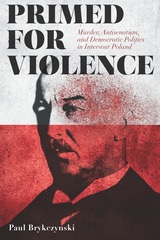
As Paul Brykczynski tells this gripping story, he explores the complex role of antisemitism, nationalism, and violence in Polish politics between the two World Wars. Though focusing on Poland, the book sheds light on the rise of the antisemitic right in Europe and beyond, and on the impact of violence on political culture and discourse.
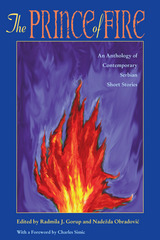
Winner of the 1998 Misha Djordjevic Award for the best book on Serbian culture in English.
Editors Gorup and Obradovic have collected stories from thirty-five outstanding writers in this first English anthology of Serbian fiction in thirty years. The anthology, representing a great variety of literary styles and themes, includes works by established writers with international reputations, as well as promising new writers spanning the generation born between 1930 and 1960. These stories may lead to a greater understanding of the current events in the former Yugoslavia.
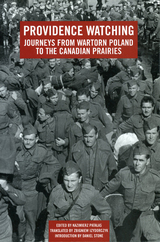
READERS
Browse our collection.
PUBLISHERS
See BiblioVault's publisher services.
STUDENT SERVICES
Files for college accessibility offices.
UChicago Accessibility Resources
home | accessibility | search | about | contact us
BiblioVault ® 2001 - 2024
The University of Chicago Press









